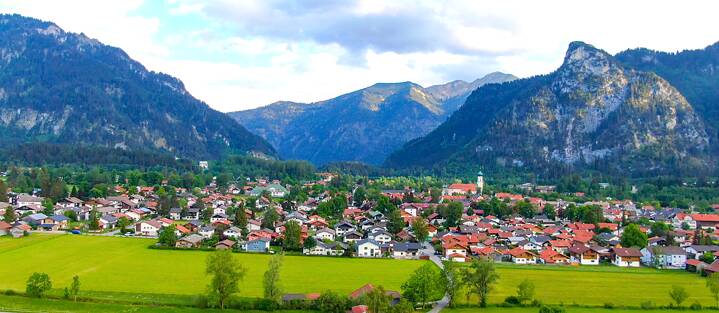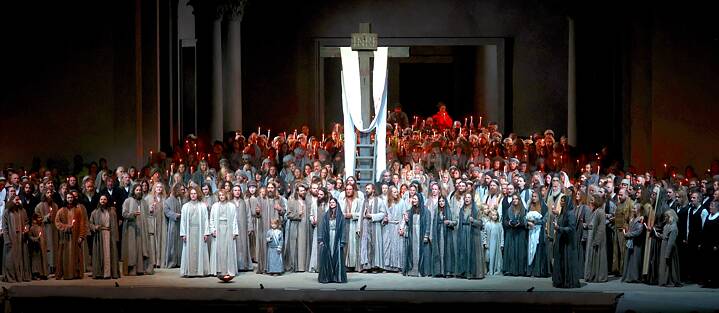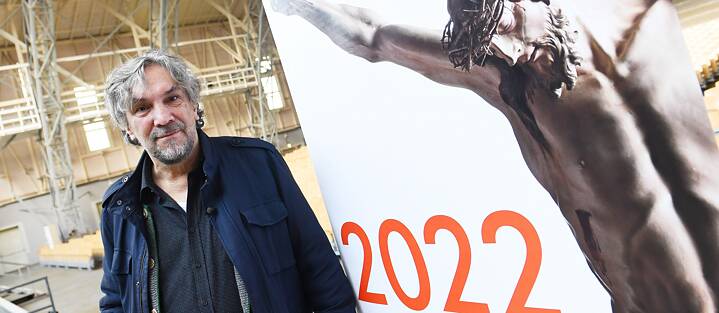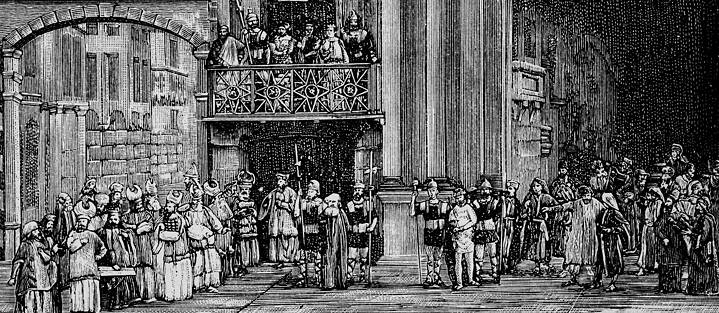Detours | Passion plays
An Ancient Local Tradition in the Bavarian Alps

It was long considered unthinkable for women or Muslims to take part in a Christian passion play – but it’s certainly possible in Oberammergau nowadays. This local spectacle attracts visitors from all over the world.
By Alina Schwermer
If you were asked which live event in 2022 attracted hundreds of thousands of people from all over the world, the first thing that would probably spring to mind would be the men’s football World Cup in Qatar. But which non-sporting event these days still draws such crowds? The answer is simple: the Oberammergau Passion Play. Passion plays tell the story, from a Christian perspective, of the life, death and resurrection of Jesus of Nazareth. The play is performed every ten years in this small town of nearly 5,500 inhabitants in the Bavarian Alps, which is home to the world’s largest amateur theatre group. The last time the Passion Play was performed in 2022 – after having been postponed by two years because of the coronavirus pandemic – around 412,000 visitors came to watch one of the hundred or more performances between May and October. Many even made the journey from overseas. Since 2014, the Passion Play has been listed as Unesco intangible cultural heritage.
But what is it about this musical theatre performance in a small Bavarian town that interests people so much? Even if the Christian faith is not your thing, you may nonetheless find the Passion Play fascinating: after all, it is an example of an ancient local tradition, it’s an opportunity for genuine social participation and it is characterized by bitter disputes and fighting in the past. The roles in the Passion Play are not assigned to professional actors but are played by the local residents of Oberammergau, a small town in the Ammergau Alps Nature Park that boasts many houses with facades artistically painted in the Lüftlmalerei style. Around a third of Oberammergau’s inhabitants actively take part in the Passion Play. And where so many people are involved, there is always plenty to discuss.
Founded in 1634, the Passion Play was for a long time a rather anti-Semitic, sexist and racist piece of theatre. Following complaints by many different groups, however, changes were gradually implemented. After the Second World War, for example, Jewish groups protested against the anti-Semitic texts and threatened to boycott the play. Now the contentious passages have been removed from the text and Jewish representatives are regularly invited to give their feedback. It was long the case that women were only permitted to perform in the play if they were younger than 35 and unmarried. In 1990 they took the play’s organizers to court and won the right to equal treatment. The renowned director Christian Stückl, who has staged the play since 1990, also modernized many aspects. A Protestant took on one of the leading roles for the first time in the year 2000, while Cengiz Görür was the first Muslim to do so in 2022.
In other words, the Passion Play gives you the chance to enjoy some local culture – and see from the example of this unique theatre performance how Germany is changing and what still needs to be done. You will need to be a bit patient, however, as the next Passion Play is not scheduled to take place until 2030.
Detours
What does Görliwood mean, why can you find a piece of the Caribbean in Bavaria and where can you dance in front of bucket wheel diggers? In our series we take you on a trip each month to somewhere in Germany that you may not yet know but should definitely be introduced to. We reveal places that are not to be found on the usual tourist trails. Are you ready for a bit of a detour?



